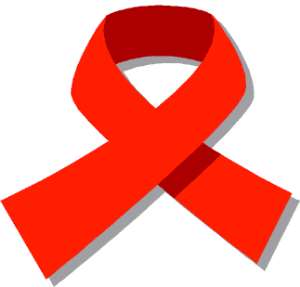
The universal goal of combating HIV/AIDS from the center stage of the global community remains far from reaching as 2015 millennium development goal six draws closer. While some countries have shown progressive results in the fight against the spread of HIV, many more have demonstrate low commitment in addressing the HIV epidemic; a situation which continues to thwart the effort of achieving the global target.
Global reports show that there has been a significant reduction of AIDS related death worldwide with an increased life span of persons living with HIV. Additionally, there has been 25% decrease in the rate of new HIV infections in over 30 countries, with a downward trend in mother to child transmission. However, despite the considerable transformations made in the AIDS response, copious forms of human rights violation continue to inhibit the progress towards achieving the global target.
Just recently, the Uganda government passed a legislation which criminalizes the willfully transmission of HIV by those who know their status with a penalty of 10year jail term or a fine of $1900. The bill also allows medical providers to disclose patients' status to others and forces pregnant women to undertake compulsory HIV testing. The government motive behind this legislation is to prevent the spread of HIV and protect women and young girls who are put into vulnerable positions by their sexual partners. While the bill is currently awaiting presidential accent to be passed into law, several calls has been made to stop such a decision.
Clearly this position contradicts the international health principle of promoting patients confidentiality. The action is founded on stigma and discrimination and signifies a step backwards in the fight against the spread of HIV. It erodes all efforts geared towards encouraging voluntary HIV testing among the general population and undoubtedly violates the fundamental human rights of person. The extent of its repercussion when passed into law is far more reaching than it gains.
I want to urge civil society organizations and human rights watchers to raise their voices and speak against this decision. Pressure should be mounted on the Ugandan president to persuade him from accenting the bill into law. It is important to stop the setting of such precedent to avoid emulation by other member states. The president should not sign this bill and instead ensure a rights-based approach, recognizing that people living with HIV will prevent transmission if they are empowered and supported.
National and international efforts are essential to achieve the goal of universal access to comprehensive HIV prevention, treatment, care and support. Compliance with the 2006 political declaration and 2011 declaration of commitment by member state remains critical to the attainment of the MDG six, as those declarations represent a unanimous decision to adopt a comprehensive framework to combating HIV/AIDS. We should collectively be involved in the fight against the spread of HIV and make HIV prevention a national concern. Like it or not, the battle against HIV is a shared responsibility and every individual has a role to play in its elimination.
Akwasi Boakye
Akwasi Boakye Is A Social Commentator
And Works With The West Africa AIDS Foundation




 Supreme court declares payment of wages to spouses of President, Vice President ...
Supreme court declares payment of wages to spouses of President, Vice President ...
 Publish full KPMG report on SML-GRA contract – Bright Simons to Akufo-Addo
Publish full KPMG report on SML-GRA contract – Bright Simons to Akufo-Addo
 Kumasi International Airport to begin full operations by end of June
Kumasi International Airport to begin full operations by end of June
 Election 2024: Our ‘real challenge’ is getting ‘un-bothered’ youth to vote – Abu...
Election 2024: Our ‘real challenge’ is getting ‘un-bothered’ youth to vote – Abu...
 [Full text] Findings and recommendations by KPMG on SML-GRA contract
[Full text] Findings and recommendations by KPMG on SML-GRA contract
 Renegotiate SML contract – Akufo-Addo to GRA, Finance Ministry
Renegotiate SML contract – Akufo-Addo to GRA, Finance Ministry
 J.B Danquah-Adu murder trial: Sexy Dondon to Subpoena Ken Agyapong, Ursula Owusu
J.B Danquah-Adu murder trial: Sexy Dondon to Subpoena Ken Agyapong, Ursula Owusu
 Galamsey: Five Burkinabes jailed 20 years each for mining
Galamsey: Five Burkinabes jailed 20 years each for mining
 'It's no crime' – Abu Sakara defends Alan's exit from NPP
'It's no crime' – Abu Sakara defends Alan's exit from NPP
 'We know all your houses, pay your bills now or we’ll disconnect you; we're all ...
'We know all your houses, pay your bills now or we’ll disconnect you; we're all ...
